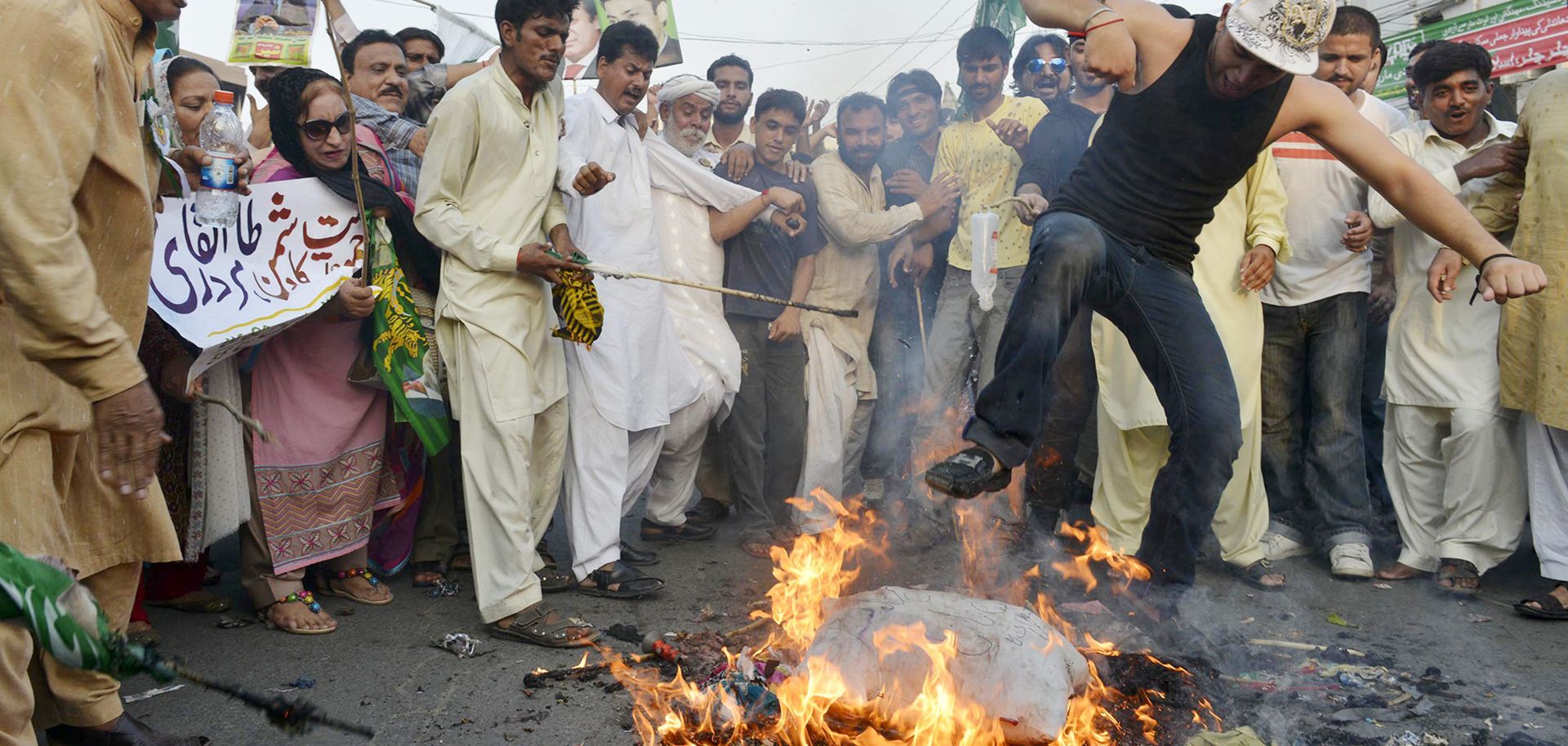ASSESSMENTS
Pakistan's Civilian Forces Are Undermining Democracy
Aug 13, 2014 | 09:05 GMT

(Arif Ali/AFP/Getty Images)
Summary
Barely 14 months after an unprecedented democratic transition of power in Islamabad, Pakistan is on the brink of a political conflict that threatens to undermine the country's democratization. Cricketer-turned-politician Imran Khan's party, the Pakistan Tehreek-e-Insaf, has demanded that Pakistani Prime Minister Nawaz Sharif's government resign. Party supporters will undertake a long march to the capital and stage a sit-in on Aug. 14. That date is the 67th anniversary of Pakistan's founding as a sovereign country and is normally a day when Pakistanis come together to celebrate, despite the problems Pakistan has experienced since its earliest days.
The party's demand has created the country's largest political crisis since the uprising against former military ruler President Pervez Musharraf. Even if the competing political forces can reach a compromise, this standoff will enable Pakistan's army to revive its position in the political system and prevent the state from focusing on the twin crises of dire economic conditions and violent religious extremism.
Subscribe Now
SubscribeAlready have an account?
